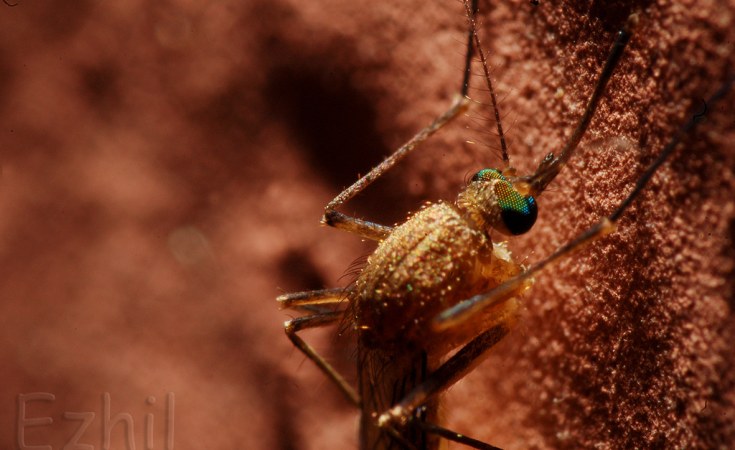A drug that is regularly given to people in Africa to prevent river blindness appears also to kill the mosquitoes that spread malaria, scientists have discovered.
The breakthrough, from teams in Senegal and Colorado State University in the US, provides another useful weapon in the armoury against a disease that kills around 800,000 a year, most of them small children and pregnant women.
"There is no silver bullet for malaria control," said Brian Foy, a vector biologist at Colorado State University and senior author of the study published in the American Journal of Tropical Medicine and Hygiene, "but this could be an important tool that would also contribute to the fight against other neglected diseases. It's clearly a multi-purpose drug."
The drug is called ivermectin and has been around for more than 30 years - originally as a veterinary medicine against worms - which means it is off-patent and cheap. It is used in annual campaigns in Africa to fight the parasitic roundworm, which causes onchocerciasis, or river blindness, and also to treat children in the west with head lice.
Foy and his colleagues hit on the idea of studying the effect of ivermectin on malaria transmission. The researchers went to several Senegalese villages and collected mosquitoes from houses before and after a mass dosing of the drug for river blindness. They found there was a dramatic drop of 79% in the proportion of mosquitoes carrying the Plasmodium falciparum malaria parasite in the two weeks after ivermectin was given out. The drug in the bloodstream of people who were bitten killed the mosquitoes. By comparison, in villages that had not been treated, the number of malaria-carrying mosquitoes increased by 246%.
The effects of the drug on parasite transmission lasted for more than two weeks, said Foy. The task now is to work out how often people would need to take ivermectin to keep malaria at bay in their village. Like vaccination, everybody would need to be dosed for the benefit of all, because the mosquito has to bite for the drug to take effect and kill it.
A programme to give regular doses of ivermectin would also better control the intestinal helminths - worm-like parasites - that cause not only river blindness but also elephantiasis and other debilitating diseases. The study suggests that the drug might be most useful "for reducing malaria parasite transmission during epidemics or delineated malaria transmission seasons that occur throughout large regions of Africa and other continents".
All attempts at malaria control using drugs have encountered the problem of resistance, but the team hopes there may be less danger that a new breed of drug-resistant mosquito will start to breed, because, unlike insecticides, only those mosquitoes biting humans will be affected.
Ivermectin was developed by the pharmaceutical company Merck from the fermentation products of bacteria discovered in soil next to a Japanese golf course in 1975. It was licensed as a veterinary drug in 1981. It works by paralysing insect and nematode muscles, which slows their ability to move and feed, causing them to weaken and die. Merck has donated millions of doses since 1987 to treat river blindness, a disease affecting about 18 million people, which is spread by black flies that transmit worms that invade the skin and eyes.


